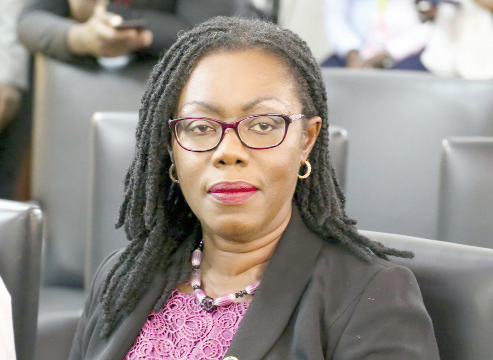The need for increased participation of women in national governance in Africa gained recognition in the late 1980s. The United Nations (UN) proposes a 30 percent benchmark for women’s participation in national governance. However, Ghana has not been able to meet this mark.
The issue of women in governance has been under discussion constantly and has brought up several questions surrounding it, which need answers. There’s a perception from the society that politics is a “dirty game” meant for men and not women and, therefore, any woman who finds herself in it (politics) is a victim of this game and should face its consequences. The question is, how true is this perception?
Ghana is fast developing in politics as people are now aware of what politics is all about; its advantages, challenges and anything it is associated with, but do women really know all these things in politics or they are simply not interested?
There are a few reasons why there is low participation of women in national governance. Child care is a factor. This is because women spend much of their time taking care of their children and to a large extent the aged and the family as a whole.
Reasons for
non-involvement
Cash or finance is one of the main reasons why women do not involve themselves in politics. Since women do not have the finances to participate in politics, they use the little cash they have to support their families. Culture plays another role in the low participation of women in national governance.
Culturally, a woman can play certain roles to contribute to national development but certainly not politics because culture demands that women should take care of the family by cooking, washing, cleaning the house or taking part in any of the household chores. This sometimes leads to gender role stereotypes in families and communities.
The lack of self-confidence in women to participate in politics is also a reason why women do not participate in national governance. Factors which account for that include shyness and low level of education. Women have therefore internalised certain values which have limited them in their social lives and are made to believe that “public life” is not meant for them.
Other factors are that the society re-enforces the women’s status only in the family, influences the lack of confidence of women,tags women involved in politics as violent and calls them all sorts of names. Members of the various political parties do not also encourage women to participate in politics because some of them do not make the conditions favourable for them. An example is the high cost for the purchase of forms which would enable them to vie for political positions. Some political parties too do not support the female aspirants financially and materially, especially during election campaigns and so they rely on family and friends for such support.
Affirmative Action
Although majority of women do not participate in politics in Ghana, a few excel and occupy governmental positions. Women groups and institutions have always encountered difficulties in ensuring actions that would deliver results of women participating in politics. ABANTU for development, a female-based non-governmental organisation (NGO), is among the organisations that campaign for women’s advancement in political life.
ABANTU has described Ghana’s low representation of women in decision making as “slow.” One way in which women’s participation can be increased is through Affirmative Action.
The first generation of Affirmative Action in Ghana occurred after independence to the late 1970s. Some of these actions were gender-specific such as the gaining of maternity leave with pay.
The Affirmative Action Bill, which was brought before the Ghanaian Parliament, was to enable women to have the equal representation and participation in politics and decision making at all levels. Other political women groups which seek the advancement of women in politics and decision making are Womankind, Network for Women Rights (NETRIGHT) and Pathway for Women Empowerment. The emphasis of women participating in politics is always on the number of women who actually participate in politics. One of the critiques of this is that, since the emphasis is on the number of the effectiveness, involvement and commitment is not key. Since there is a very low representation of women in Parliament, it affects the decision-making process and therefore gender issues are not paid attention to, especially on the passing of bills related to women or concerning women.
From 1992 to 2016, women who contested and won parliamentary seats in their constituencies rose from 6.5 per cent to 12.7 per cent. This shows clearly that there have been some improvement in the number of female parliamentarians in Ghana since 1992. However, a lot more needs to be done to hit the proposed 30 per cent benchmark for women’s participation in national governance by the UN. This means that in order for Ghana to hit this benchmark of 30 per cent of women participation in national governance, the women who contest in national elections as parliamentary candidates need to win at least 83 seats out of the 275 seats in Parliament.
Apart from Affirmative Action being one of the means by which women can be encouraged to participate in politics, they should also be encouraged to disabuse their minds of negative perceptions that politics is not an area for women. What the society needs to do is to support them with all they need to be successful in politics.These supports can come in any form, including support of cash/finances, especially during election campaigns, words of encouragement, educational sponsorship in their education, seminars and workshops to keep them informed of the benefits of participating in politics. When these are done, politics will be a place for women which will go a long way to contribute to Ghana’s political development.

